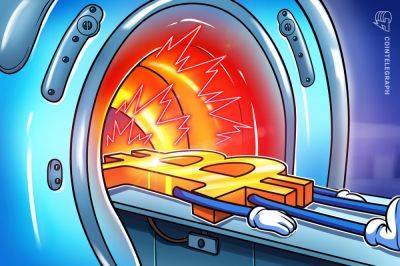Economics of Bitcoin ATM market could hinder wider adoption
As the digital asset market continues to evolve, the use of cryptocurrency ATMs grows with it. Over the past decade, nearly 40,000 cryptocurrency ATMs have popped up worldwide.
Bitcoin (BTC) ATM service provider, Bitcoin of America, had carved out a slice of the market but recently closed shop in the United States State of Connecticut due to a lack of proper licensing.
The Connecticut Department of Banking (DoB) issued a cease and desist order against the company, accusing it of operating unlicensed crypto ATMs in the state. But the allegations didn’t stop there; the firm was also accused of facilitating scams by allowing transactions related to fraudulent activities.
In response to the challenges, Bitcoin of America released a statement claiming it would immediately halt all of its operations in Connecticut. While the decision marked the end of the company’s presence in the state, it also underscored the regulatory hurdles faced by crypto ATM operators, particularly in the United States.
The closure also sent ripples across the crypto community, leading many industry observers to question the long-term efficacy and utility of these machines.
Due to the nascency of the cryptocurrency industry, marrying digital currencies with conventional financial structures — as in the case of crypto ATMs — requires intricate regulatory supervision. This is particularly true in Connecticut, where the DoB oversees ATMs under the Money Transmission Act.
The act requires that any service involving the transfer of money, including the conversion of traditional currency to cryptocurrency, must secure a money transmitter license.
On May 22, the Connecticut DoB claimed that Bitcoin of America had not secured the necessary license to operate
Read more on cointelegraph.com






















